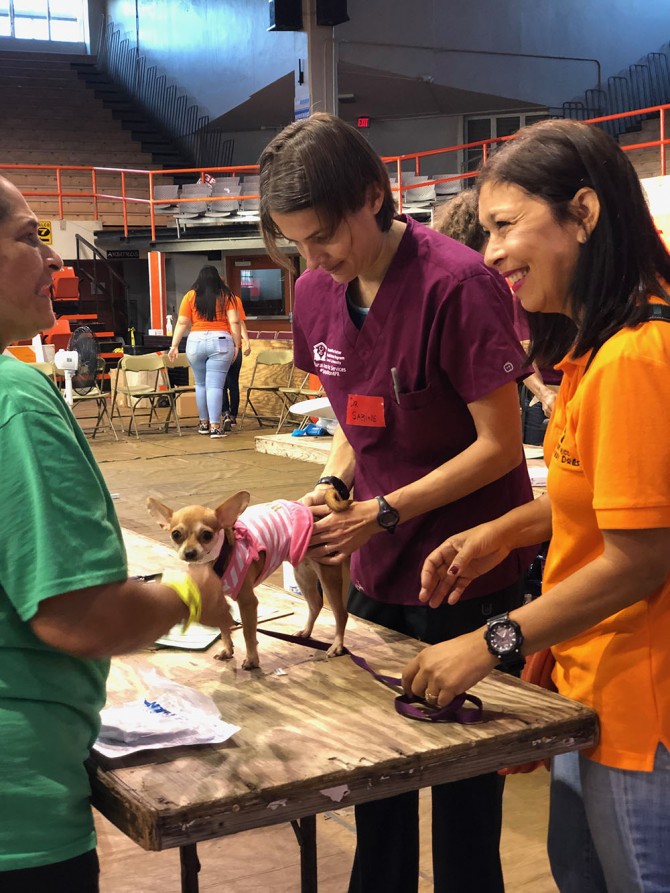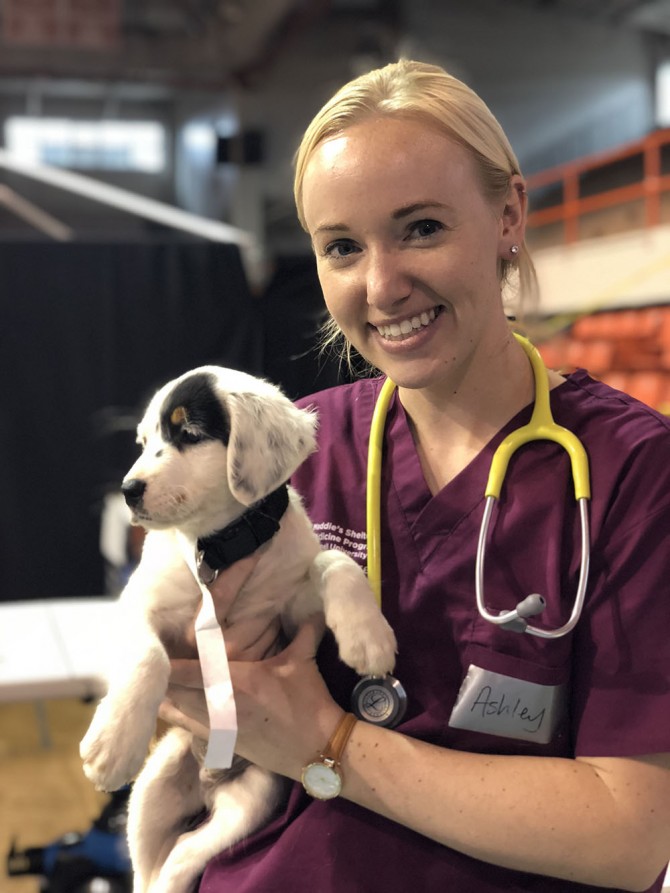Cornell veterinarians lead animal outreach trips to Puerto Rico
By Melanie Greaver Cordova
Even before Hurricane Maria struck Puerto Rico in September 2017, an estimated 300,000 stray dogs and 1 million stray cats roamed the island.
After the Category 5 hurricane hit, family pets became separated from their owners, regular spay/neuter operations for strays ceased and few animal shelters could function because of the island’s fractured infrastructure. Now, veterinarians from the College of Veterinary Medicine are leading service trips as part of a national initiative to alleviate these conditions.
Organized by the Humane Society of the United States, the Spayathon for Puerto Rico initiative is bringing volunteers from a coalition of organizations together to perform high-quality, high-volume spay/neuter and vaccination services. During four visits over the course of a year, eight clinics will operate simultaneously across the island to meet the Humane Society’s goal of reaching at least 30,000 animals by May 2019. They treated approximately 5,600 animals this summer during the first round.
“The Spayathon is about reaching animals in crisis as well as providing a sustainable and replicable model for the future,” said Elizabeth Berliner, D.V.M. ’03, the Janet L. Swanson Director of Shelter Medicine. Last week, Berliner led a team of experts from Maddie’s Shelter Medicine Program to the city of San Germán as part of the Spayathon’s second round of outreach trips.
“We treated exactly 600 animals in seven days, exceeding our initial goal of 500,” said Berliner. All told, the second round saw more than 8,000 animals treated, bringing the current Spayathon count to 15,572. Berliner will lead two additional trips this winter.
Hurricane Maria was the costliest natural disaster in the island’s history, causing $95 billion in damages across the storm’s path and more than 4,000 human casualties. Many of the island's 3.3 million residents found they could not care for their pets after the storm, and animal shelters were quickly overwhelmed.
“It was inspiring to see what could be accomplished with limited people and resources, including basics like electricity,” said Sarah Ericksen, a fourth-year veterinary student. “Whatever challenge we faced, we found a way to solve it because we knew how much it meant to everyone.”
Most pet owners waited in hot temperatures for hours, often overnight, to ensure their dog or cat would be seen, said Ericksen.
Providing these services to thousands of animals at no cost to their owners or the shelters will help both the people of Puerto Rico and their pets recover. It will also reduce the risk of transmission of zoonotic diseases like rabies and leptospirosis that comes from a high density of stray animals.
“In the years prior to Hurricane Maria, some shelters were already euthanizing more than 95 percent of their intake. Because of the hurricane’s effects, their intake numbers have risen dramatically,” said Berliner.
In addition to treating animals, a core component of the initiative is to create a lasting spay/neuter infrastructure in Puerto Rico. One way the Spayathon is accomplishing this is by training veterinary professionals from the island in high-quality, high-volume spay/neuter and vaccination techniques.
“The sustainability factor is extraordinarily important,” said Berliner. “Island veterinarians and technicians will be able to apply their training even after the Spayathon concludes. Their ability to continue contributing to the effort is critical to enacting sustainable change for both the animals and people of Puerto Rico.”
The Spayathon will also donate all of the surgical equipment, supplies and other remaining assets at the end of the campaign, contributing to an estimated $1.6 million worth of free services, materials and donated time.
Melanie Greaver Cordova is a staff writer with the College of Veterinary Medicine.
Media Contact
Get Cornell news delivered right to your inbox.
Subscribe


